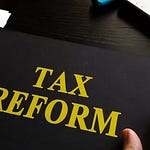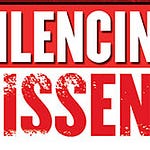Back in early February, I wrote about a bill regarding an obscure issue called the 340B program.
The jist of the issue is that it is a program designed to reduce prescription drug prices for lower income patients, but there is no tracking or transparency to verify and ensure that those benefits actually trickle down to the intended recipients.
Much like how people feel like state property tax relief does not get down to the taxpayers it is supposed to relieve.
In February, I interviewed Kent Keiser (from Minnesota) of the Domestic Policy Caucus for BEK-TV:
Long-Standing Problems Documented By Both Conservative and Non-Partisan Organizations, As Well As Mainstream Media
There is actually very little controversy about the problems with the 340B program.
On the mainstream media journalism side of analysis, the New York Times published an article just this year about the abuses in the 340B program:
Soon after being diagnosed with metastatic breast cancer, Virginia King sat in an outpatient clinic in Santa Fe, N.M., while a nurse injected her with a powerful drug to slow damage to her spine, where the disease had spread.
Even though the drug had a list price of about $2,700, the hospital that owned the cancer center billed Mrs. King’s insurance company $22,700. Her insurer paid $10,000, but the hospital wanted more.
She got a bill for over $2,500 — “more than half my take-home salary for a month,” said Mrs. King, 65.
She had unknowingly sought care from a hospital that participates in a federal program allowing it to buy drugs at a steep discount and charge patients and insurers a higher amount, keeping the difference.
The intention behind the program was for a small number of safety-net providers to have access to affordable drugs and be able to expand their care for needy patients. But instead, the program has exploded: Now, more than half of nonprofit hospitals in the United States take part. While some providers say it has helped keep their doors open, others — especially large nonprofit health systems — have been accused of maximizing payouts and swallowing the profits.
On the non-partisan side of analysis, the Congressional Research Service has done work to document various legal issues with the program.
The 340B Drug Discount Program enables eligible hospitals and other safety net providers to purchase outpatient prescription drugs at discounted prices. The Health Resources and Services Administration (HRSA), an operating division of the U.S. Department of Health and Human Services (HHS), administers the program. In recent years, both legal and policy disagreements have arisen between HHS, drug manufacturers, eligible providers (known as “covered entities”), and other stakeholders about the size of the program, how it should function, and who should benefit from it. For example, disagreements about covered entities’ use of retail pharmacies to distribute 340B drugs to patients have led to a number of lawsuits that challenge both the Secretary of HHS’s and states’ authority to regulate the program.
On the conservative side of analysis, groups like the National Taxpayers Union, Americans for Tax Reform, and the American Legislative Exchange Council have exposed issues and pushed back on expanding the program due to its existing shortfalls.
An IQVIA analysis found that commercial employers in North Dakota shoulder an estimated $53 million in additional healthcare costs due to lost rebates under the 340B program, while state and local governments face an extra $10 million. If passed, HB 1473 would further increase these costs by $14 million for commercial employers and $2 million for state and local government plans in North Dakota.
Myth #1: 340B discounts go to patients.
Fact: Studies have shown patients rarely receive the 340B discount at the pharmacy counter.
A 2022 study found the only evidence of patients receiving the 340B discount was for the 1.4% of branded drugs at contract pharmacies that used 340B discount cards. Pharmacies often have no way of knowing whether patients are 340B eligible at the pharmacy counter. Some entities have used 340B discount cards to indicate the eligibility status of the patient for 340B drugs, but the practice has not been widely adopted. Other methods such as electronic tags (called “claims modifiers”) that allow providers and pharmacies to determine patient eligibility for 340B have been banned by some states.
Myth #2: The 340B program saves rural hospitals.
Fact: Rural hospitals have been benefitting from the 340B program since it was initiated in 1992 and will continue to do so, but 340B is not a solution to rural hospitals’ financial woes.
Rural hospitals across America are struggling financially. Alleged fraud or financial mismanagement, low reimbursement rates, natural disasters, and workforce shortages have all contributed to the high rates of rural hospital closures. The federal 340B program was created to help Americans struggling with the cost of prescription drugs to access affordable medicines by aiding providers in low income and underserved areas. Often located in rural areas, these safety net facilities serve large numbers of uninsured and economically vulnerable patients. Assisting these providers by selling them drugs at a steep discount was supposed to help them to improve and expand their services. Rural hospitals have been benefitting from the 340B program since it was initiated in 1992 and will continue to do so, but 340B is not a solution to rural hospitals’ financial woes.
As you can see, this is a real and legitimate deep in the weeds policy issue.
Outside Super-PAC Hijacks 340B Issue: Distorts Real Issues And Muddies The Waters
On Thursday, the Bismarck Tribune wrote a story about another group that is spending a lot of money in North Dakota also trying to defeat HB 1473, but taking a very intellectually dishonest approach to make waves rather than educate people about the real issues.
According the article:
For nearly two weeks, Building America's Future, a nonprofit organization that spends millions of dollars to boost Republican candidates during elections, has aired ads against supporters of the 340b drug pricing program, specifically state Rep. Jon Nelson, R-Rugby. They claim the program subsidizes gender transition procedures for minors. A video can also be found on the group’s YouTube channel with the title “Trump Underminers.”
Reuters reported in October 2024 that a handful of people familiar with how the group is funded confirmed it receives financial contributions from billionaire and senior adviser to President Donald Trump, Elon Musk.
[…]
The group posted in early February about a truck with a message plastered on its side in capital, bold lettering: “340b is subsidizing gender transitions for kids."
The matte-black truck, with what appeared to be out-of-state license plates, looped around North Dakota’s State Capitol building on the morning of Feb. 10.
There was a similar message on the back in all capital letters: "Tell North Dakota Republicans: stop subsidized gender transition for kids."
The 340B program has NOTHING to do with transgender surgeries, it is about prescription drug prices.
This group called “Building America’s Future” is actually getting in the way of either a) defeating HB 1473 or b) converting it to a study as I suggested in my testimony (see video at the top of this page).
And they are doing it in a very gross way.












Share this post